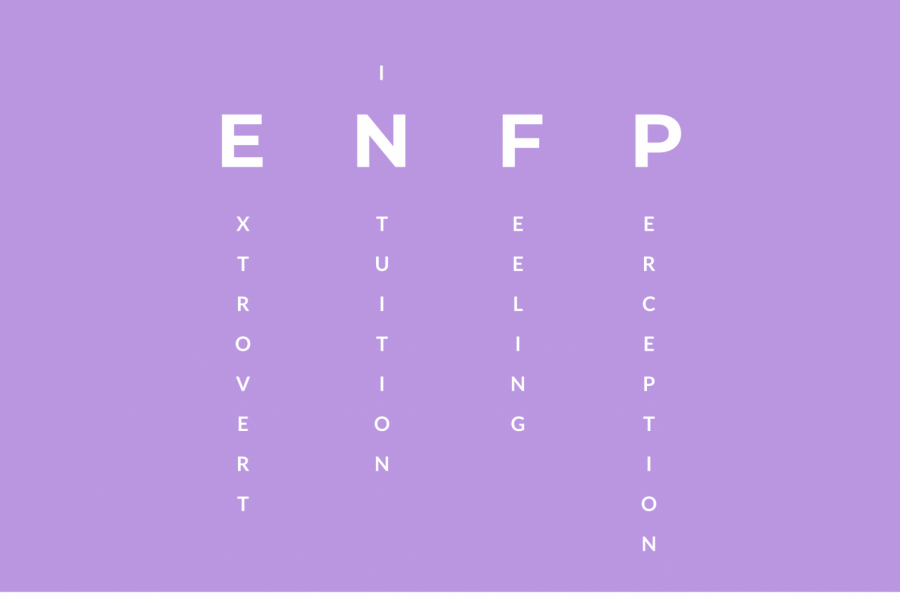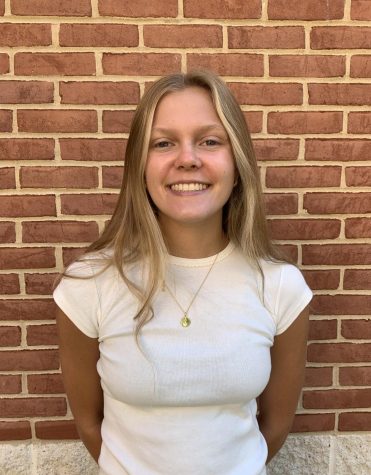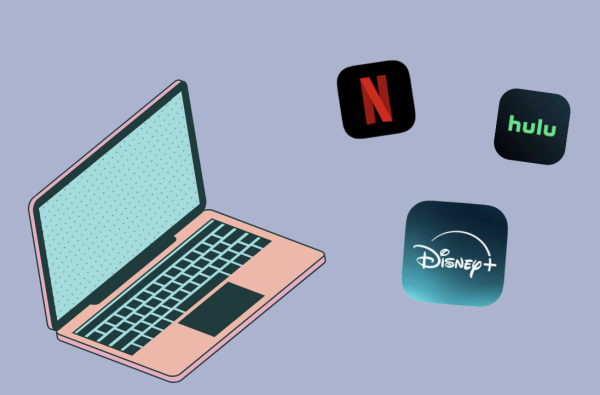Analyzing my Myers-Briggs personality type
A pathway towards better understanding myself, and those around me
I kept looking back at one sentence: “You share this personality type with about 5% of the population, which means that 95% of the world sees things differently.”
March 13, 2021
ENFP. That stands for extraversion, intuition, feeling and perception: my personality type. I tested in at over 20 –– an extremely strong tendency –– for all four categories, meaning my driving forces lie in my intuition and feelings.
This past summer, my mother’s coworker introduced my family to the Myers-Briggs personality test, an introspective questionnaire that indicates how one perceives the world and makes decisions.
Before we took the test, my family and I were unaware of the stark contrasts between our personalities. There were some sneaking suspicions that our tendencies varied –– during family dinners I manage to share every detail of my day while my dad doesn’t speak at all –– but we didn’t know how to pinpoint or describe these differences.
So, when my mom’s colleague explained how the test would thoroughly analyze us, we jumped at the opportunity, wondering if we could use the results as a framework for any future family disagreements.
The first section gave us specific scenarios and asked what we would do; for example, a question asked if respondents would rather teach a fact-based course or a theory-based course. The second section provided two words and had us choose the word we were more drawn to, like “fascinating” or “sensible,” for example.
When my family received our results two weeks later, our jaws dropped; the test perfectly described all of our personalities. My mother’s report said she preferred structure over a free-flowing schedule, which made sense; every day at 6 a.m., she writes a thorough to-do list. My dad’s report said that he loves routine and tradition and, sure enough, for the last five years he has only listened to Chris Stapleton while washing the dishes.
As I read through my report, I recognized traits that people had often used to characterize me before: eagerness, forward-thinking, enthusiasm, spontaneity and empathy. But, I kept looking back at one sentence: “You share this personality type with about 5% of the population, which means that 95% of the world sees things differently.”
This analysis didn’t surprise my family; I tend to stray from conventional and logical ways of thinking. Now holding my test results, I felt an urge to discover the nuances of my personality. Perhaps this is because of my interest in being agreeable –– which was also highlighted in the report –– but I was now intent on understanding how my personality helps me to understand others.
Specifically, after pondering my distaste for logical thinking, I had a realization: I’m currently in the middle of my college search, and while deciding on which schools I wished to consider, I noticed how I prioritize my instincts over rationality. I’ve come to realize that not everyone favors their “gut feelings” over logical decisions. This allows me to understand the different thought process and problem-solving mechanisms that others might employ, like choosing colleges for specific academic fields rather than a “general vibe” of the campus.
Another point of discrepancy that I noticed was the value I placed in emotional experiences. ENFPs think that everything that occurs has a special significance, and that sentiment is a vital part of life. This is most apparent in my tendency to attach to anything and everything. For example, my family recently wanted to paint our den from the original wood paneling to a dark blue. I told my family that I had an emotional connection to the walls, and I “will cry for days if we paint the den.” I’ve lived in my house for only about four years, yet I have already formed a deep-seated emotional connection with the room. I had a slight epiphany here: not everyone is constantly aware or expressive of their emotions. This should have been obvious to me before, but now, I recognize that some people prefer avoiding emotional experiences instead of seeking them out. Along with that, I’ve become aware of how I shouldn’t urge my friends and family to immerse themselves in their emotions, even if it’s what I think is best.
The end of my test results showed my drive to understand people. This entire blog is about working to understand others, so it’s easy to see how I value communication. My analysis highlights that ENFPs tend to be gullible; we assume everyone has the same values as us.
My past experiences have demonstrated this value. When my Italian teacher assigned a free-form group project last year, I decided to take advantage of the leniency on the structure of the project. I wanted to create a short play that demonstrated my group’s vocabulary knowledge. My group members, unlike me, wanted to write a paragraph. They didn’t consider doing a play; they said it wasn’t formal or organized enough. My feelings were subsequently hurt because they didn’t appreciate my ideas like I hoped they would. I now realize that people see the world differently –– personalities lead them to fundamentally disagree with me, and I’ve come to accept that.
This premise seems simple enough, but this opportunity allowed me to figure out the roots of disagreements I may have with peers that might cause conflict. As I reflected on my past disagreements with others –– though there are only a few –– it has become plain how most of them stemmed from my ENFP-specific way of thinking. By realizing that my perspective isn’t universal, I’m able to better understand others and the factors which drive our differences, and easily resolve any frustrations that evolve from them in the future. In the end, I couldn’t be happier as an ENFP.









